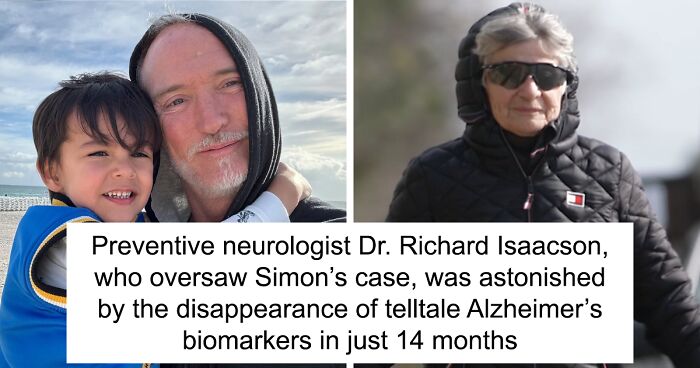
Man Makes Major Lifestyle Change In 50s, Halts Alzheimer’s Progression In Weeks
A woman and a man living with Alzheimer’s have reportedly been able to halt and, to some degree, “reverse” the effects of their disease thanks to simple lifestyle changes that include a strict diet and certain physical activities.
Last week (May 17), CNN released a segment of its upcoming documentary, The Last Alzheimer’s Patient, where Cici Zerbe and Simon Nicholls recounted their experience participating in a clinical trial, which involved switching to a plant-based diet, doing regular exercise, group support, yoga, and meditation.
- Two Alzheimer's patients reportedly reversed symptoms.
- Alzheimer’s reversal was credited to a plant-based diet, regular exercise, and stress management.
- Ethnobotanist’s theory on L-serine sparked a novel Alzheimer's treatment being tested in Texas.
The documentary features CNN Chief Medical Correspondent Dr. Sanjay Gupta traveling to Jackson Hole, Wyoming, USA, to learn more about an ethnobotanist’s audacious theory on treating Alzheimer’s disease.
After Dr. Paul Cox, founder of the nonprofit Brain Chemistry Labs, discovered the source of a mysterious neurodegenerative disease afflicting people in Guam, those clues led him to a novel way of thinking about Alzheimer’s and a simple amino acid called L-serine, the American broadcaster explained.
Paul’s novel theory and possible treatment were being tested in mild cognitive impairment patients at Houston Methodist in Texas.
In the documentary, Cici revealed that she was feeling “much better” since adopting the program.
When asked specifically about the factors that helped “reverse” the Alzheimer’s symptoms, Cici confidently credited meditation, diet, and exercise — and revealed that while her favorite food used to be veal cutlets, she hasn’t had one in five years, The Daily Mail reported on May 18.
A woman and a man living with Alzheimer’s have reportedly been able to halt and, to some degree, “reverse” the effects of their disease
Image credits: SHVETS production/pexels
Simon, who is 55 years old, reportedly shared a similar journey to Cici.
Despite carrying two copies of the APOE4 gene, which heightens Alzheimer’s risk, Simon experienced a remarkable turnaround after lifestyle changes, The Daily Mail reported.
He told CNN: “I was very worried.
“I have a three-year-old son and an eight-year-old son.
“It’s really important for me, as I get older, to try and be there for them in the future.
“There are many [changes] in lifestyle you can do to hopefully push the disease backward and give yourself more time, which is all we need until we find a cure.”
Image credits: CNN
In 2022, Thor actor Chris Hemsworth learned in an episode of the National Geographic docuseries Limitless, where he underwent genetic testing, that he also had two copies of the gene APOE4.
In CNN’s documentary, Simon emphasized the importance of preventative measures, having witnessed first-hand the consequences of heart disease and dementia within his own family.
He told the broadcaster: “My whole family had endless heart attacks, resulting in my grandfather on my mother’s side dying around age 50.
“My mother had three heart attacks, the first at age 50, then a triple bypass before she went on to develop dementia.
“Sadly, my mum passed away from what we think is Alzheimer’s in her 70s.
“For the last 10 years of her life, she just sat in a chair, rocking, while on about 14 medications.
“I’d much rather have a longer health span and then just go quickly.”
Simon Nicholls reduced his risk of developing Alzheimer’s via lifestyle changes
Image credits: Simon Nicholls/CNN
Preventive Neurologist Dr. Richard Isaacson, who oversaw Simon’s case, was astonished by the disappearance of telltale Alzheimer’s biomarkers in just 14 months, The Daily Mail reported.
Pathological processes occurring in the brain produce proteins that leak into the bloodstream, so they are available from a simple blood draw, Nature explains.
The known biomarkers for Alzheimer’s are the accumulation of protein fragments known as beta-amyloid and tau, according to the Alzheimer’s Association.
These biomarkers can be detected using imaging technologies or assessed through a cerebrospinal fluid test. However, the presence of these biomarkers alone is not sufficient to determine an Alzheimer’s diagnosis.
Image credits: CNN
Simon’s initial intervention reportedly involved prescribing tirzepatide. As per the National Library of Medicine, tirzepatide is a medication used to treat type 2 diabetes mellitus (T2DM).
The injectable drug works by mimicking the hormones that are naturally secreted by the intestine after a meal, which prompts insulin secretion.
It also reduces appetite by slowing down the time it takes the stomach to empty and interacting with areas in the brain harboring these hormones’ receptors to signal satiety, Weill Cornell Medicineexplains.
Simon was simultaneously urged to intensify his physical exercise routine — including the incorporation of strength training three times weekly and dedicating 45 to 60 minutes daily to zone 2 exercise, The Daily Mail reported.
Despite carrying two copies of the APOE4 gene, which heightens Alzheimer’s risk, Simon experienced a remarkable turnaround
Image credits: Simon Nicholls/CNN
The patient reportedly began a routine of brisk walking, rucking, jogging, or cycling at 60 percent to 70 percent of heart rate, which became a staple in his mornings.
He said: “I love going for a walk every morning at sunrise for an hour and a half with a podcast.
“I get in 10,000 steps or more every day. I’m very consistent.
“I also do a very slow full-body workout with weights three times a week for an hour’s time.”
He also engaged in a slow full-body weightlifting routine thrice weekly for an hour each session, in addition to implementing dietary restrictions, such as eliminating sugar, artificial sweeteners, alcohol, and ultra-processed foods.
As Simon further embraced a plant-based meal plan, astonishing results were observed within nine weeks.
View this post on Instagram
Neurologist Richard said: “When I first saw Simon, he had a bit of a middle, like most guys in their 50s.
“When I saw him at nine weeks, I did a double take. He was totally buff, ripped even.
“Within those nine weeks, he had lost 21 pounds, about 80 percent of that fat, and put on muscle, which was excellent.
“I almost didn’t recognize him.”
Simon, who ended up shedding 21 pounds (9.5 kilograms), incorporated additional interventions into his regimen.
He told CNN: “I have steam and sauna rooms in my home, I do a lot of that. I love it.
“I’ve tried cold water plunges, and I have lists of things to do I get from podcasts, from walking to sleeping to gratitude to yoga to sleep routines.”
CNN’s The Last Alzheimer’s Patient is available on the broadcaster’s The Whole Story channel and will be released for streaming on Max on June 18
As part of our documentary film, “The Last Alzheimers Patient,” we investigated a strange Alzheimer’s-like disease on the island of Guam. People there were 50 to 100 times more likely to develop the disease than anywhere else on the planet. Nearly 25% of the residents there… pic.twitter.com/g5ue9F0sE8
— Dr. Sanjay Gupta (@drsanjaygupta) May 21, 2024
Nevertheless, Simon and his doctor have come to a disagreement about stem cell injections, which the patient said he received twice a year.
Simon explained: “Sadly, I have arthritis in my hands, and that definitely feels better when I use stem cells, and I like to think they may be helping my brain, as well.”
Doctor Richard said he refrained from using the term “reverse” but reportedly emphasized the excitement surrounding the promising results observed in Simon and other patients.
Alzheimer’s disease is the most common type of dementia. As per the Centers for Disease Control and Prevention (CDC), Alzheimer’s is a progressive disease beginning with mild memory loss and possibly leading to loss of the ability to carry on a conversation and respond to the environment.
In 2020, as many as 5.8 million Americans were living with Alzheimer’s disease, the CDC states.
Younger people may get Alzheimer’s disease, but it is less common. Moreover, the number of people living with the disease doubles every five years beyond age 65.
This number is projected to nearly triple to 14 million people by 2060, according to the CDC.
Scientists do not yet fully understand what causes Alzheimer’s disease, the CDC notes. There likely is not a single cause but rather several factors that can affect each person differently.
Some of these factors include age and family history, but researchers believe that genetics may play a role in developing Alzheimer’s disease. They also say that genes do not equal destiny.
CNN’s The Last Alzheimer’s Patient is available on the broadcaster’s The Whole Story channel and will be released for streaming on Max on June 18.
Poll Question
Thanks! Check out the results:
Explore more of these tags
Sincerely. If this had any verisimilitude, it would have been published in all the medical journals and would be a method of treating Alzheimer's disease. Current treatments are aimed at delaying the progression of Alzheimer's so they do not bring anything new to the table.
Agreed. DId this guy actually have Alzheimer's or just initial symptoms? My mother recently passed from the disease and 5 years ago we did an MRI of her brain and you could see the changes in her brain (shrinking) as compared to earlier scans. Progress is being made but I'm not sure that he "reversed" anything...
Load More Replies...No, I'm sorry but this is wishful thinking. I worked as a care and support worker that specialised in dementia/Alzeihmers for 10 years and I can say that these people may feel as though they have halted it but they are still 'doomed' for lack of a better word. Look at brain scans of suffers and you'll see what I mean. This disease effectively eats your brain- scans look like Swiss cheese brains.
Exactly. My mother just died from Alzheimer's a few weeks ago and I saw her brain scan several years ago and it was shocking. No way that he "reversed" this disease.
Load More Replies...If true, it still won't work for most people because they simply don't have the time or will to do the necessary exercise
Sincerely. If this had any verisimilitude, it would have been published in all the medical journals and would be a method of treating Alzheimer's disease. Current treatments are aimed at delaying the progression of Alzheimer's so they do not bring anything new to the table.
Agreed. DId this guy actually have Alzheimer's or just initial symptoms? My mother recently passed from the disease and 5 years ago we did an MRI of her brain and you could see the changes in her brain (shrinking) as compared to earlier scans. Progress is being made but I'm not sure that he "reversed" anything...
Load More Replies...No, I'm sorry but this is wishful thinking. I worked as a care and support worker that specialised in dementia/Alzeihmers for 10 years and I can say that these people may feel as though they have halted it but they are still 'doomed' for lack of a better word. Look at brain scans of suffers and you'll see what I mean. This disease effectively eats your brain- scans look like Swiss cheese brains.
Exactly. My mother just died from Alzheimer's a few weeks ago and I saw her brain scan several years ago and it was shocking. No way that he "reversed" this disease.
Load More Replies...If true, it still won't work for most people because they simply don't have the time or will to do the necessary exercise

 Dark Mode
Dark Mode 

 No fees, cancel anytime
No fees, cancel anytime 



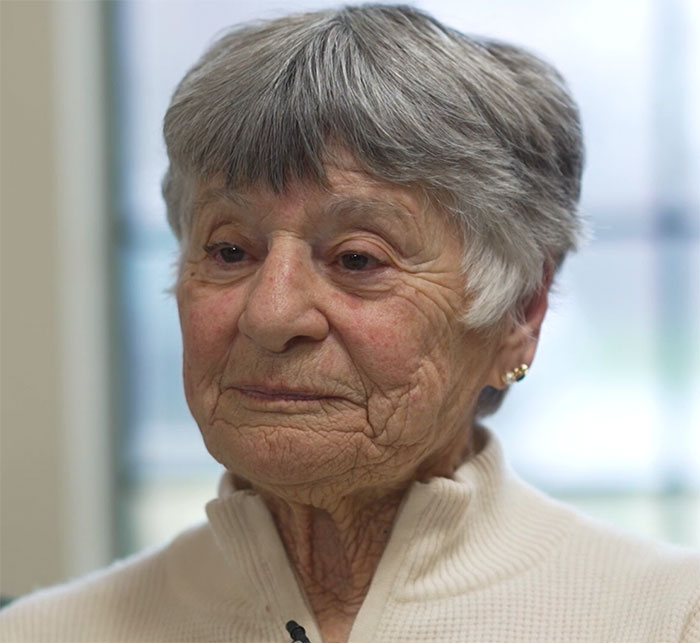
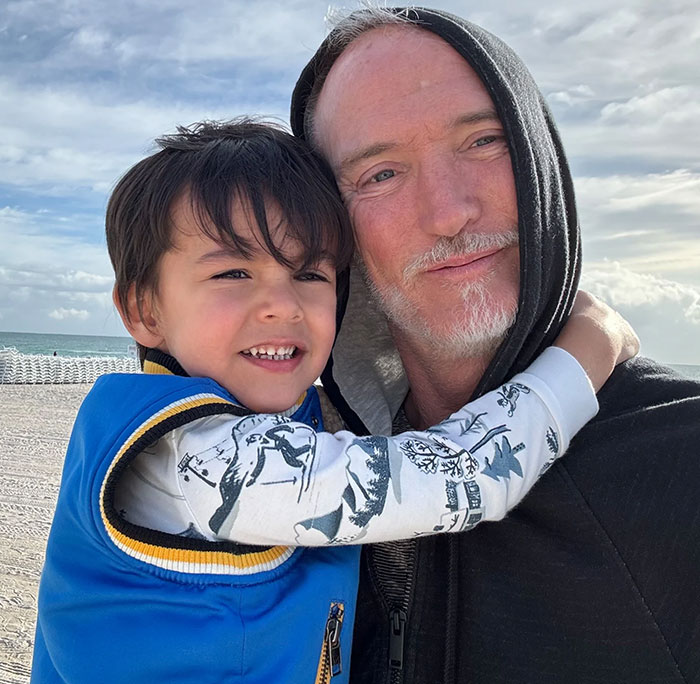
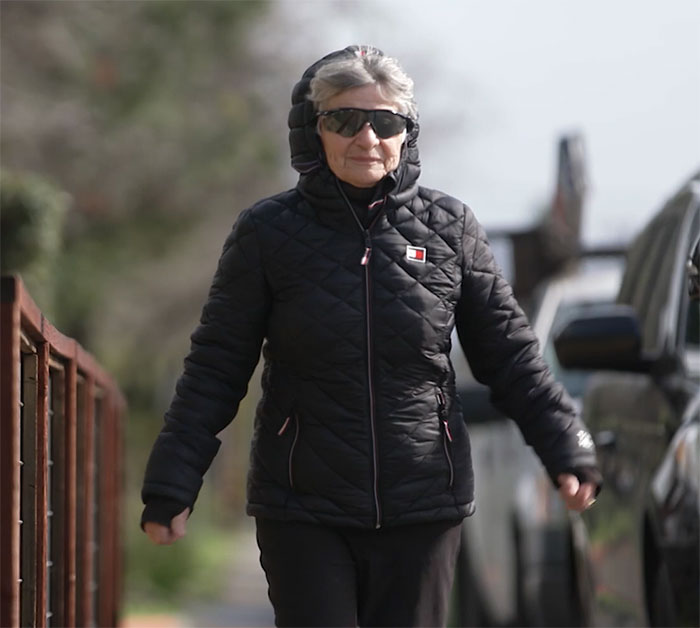
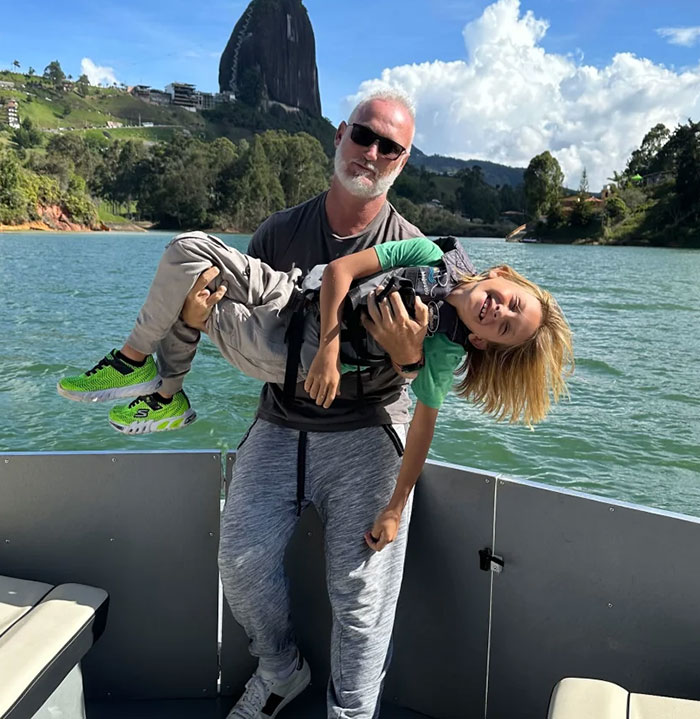





























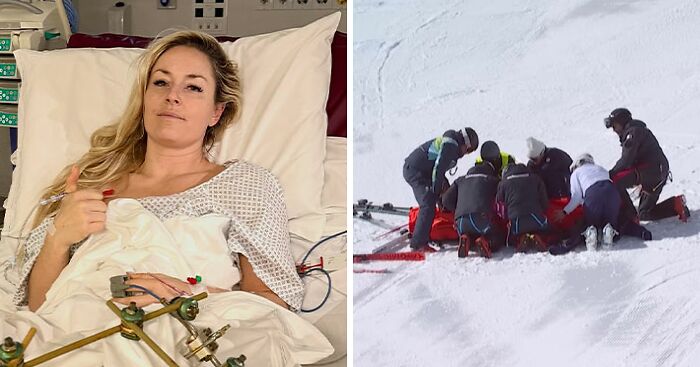

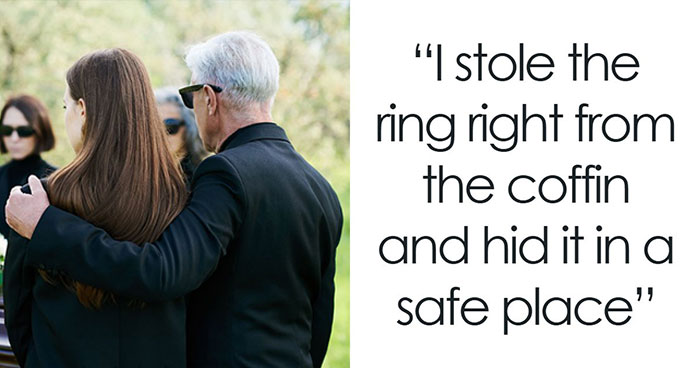
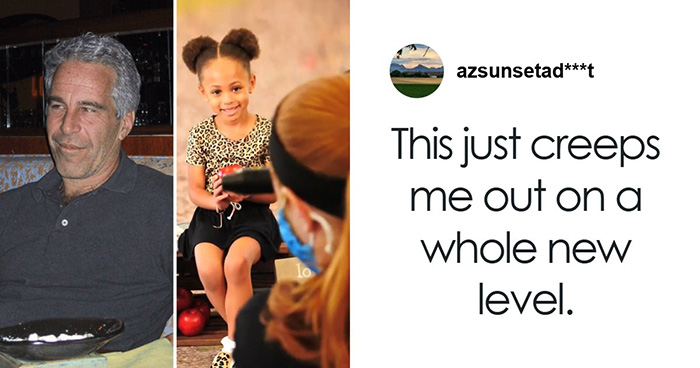








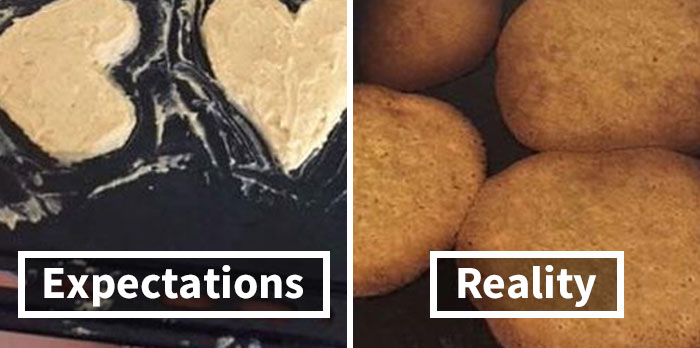

14
8